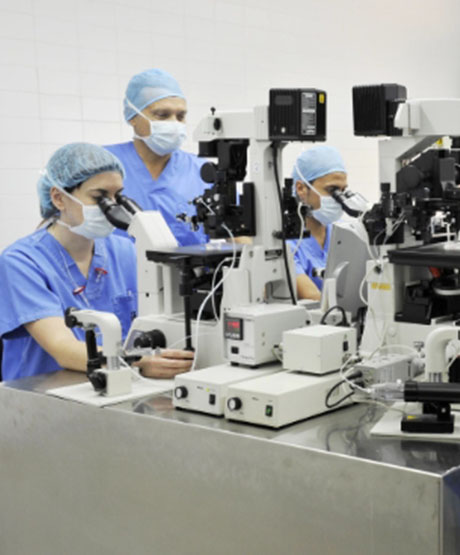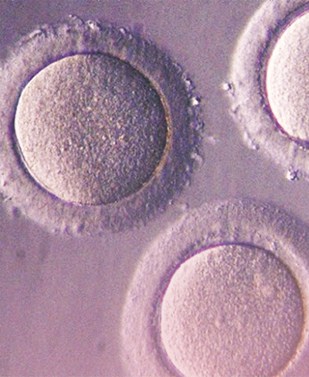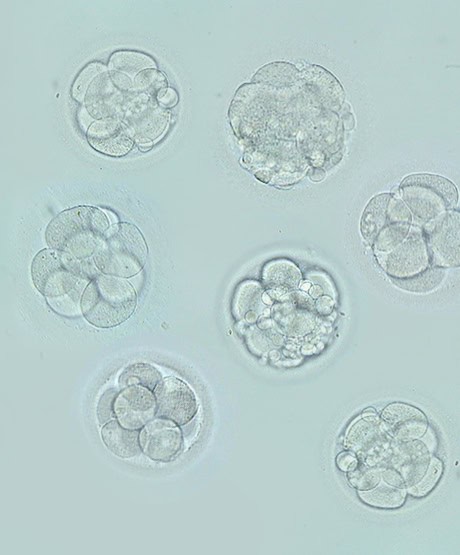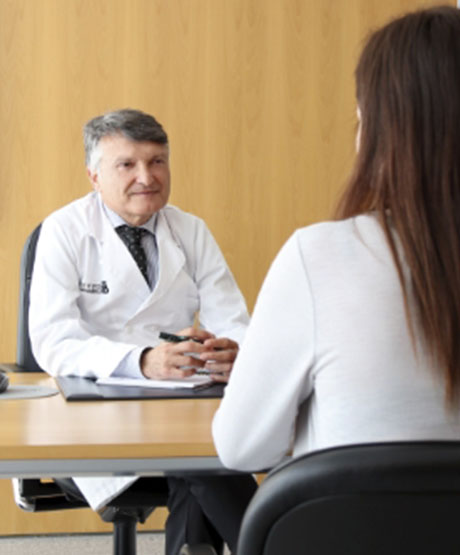ROPA method Lesbian Motherhood, bisexual and transgender
Reproductive medicine offers different alternatives for new family models, among them, the ROPA method that allows couples to share motherhood from the beginning. One as the genetic mother and the other as the gestational mother.
What is ROPA?
The IVF ROPA method (Reception of Oocytes from Partner), or the method of receiving eggs within the couple, is a technique of reproductive medicine that makes it possible for two married women to participate in the treatment and the pregnancy after both have given their consent.
One of them provides the oocytes which are inseminated with anonymous donor sperm whereas the other one receives the embryos. There is, therefore, a genetic mother and a mother who carries the pregnancy.
Lesbian motherhood: A biological and social change
Sexual reproduction requires an interaction between two germ cells, one female and one male, in the female genitalia. In cases where this process is not accepted for reasons of sexual identity or sexual orientation, we opt for Assisted Reproduction Techniques, as sexuality and the wish to reproduce does not exclusively derive from those biological conditions.
Nowadays, we find family diversity. Heterogenous situations and wishes requires specific responses to each situation, such as a shared pregnancy between two women.
At Instituto Bernabeu, always sensitive to each patient’s specific needs, we adapt our medical and reproductive care to offer personalized treatments.
The legal status of lesbian shared biological motherhood in Spain
According to the law currently in force in Spain, “Women shall be able to use the techniques regulated in this Law regardless of their marital status and their sexual orientation”. In this way, women’s right to motherhood is reinforced and, what is more important, not only for reasons having to do with fertility.
Since 2007, lesbian shared biological motherhood has been legally recognised in Spain. Consequently, babies that are born through a ROPA treatment within a lesbian married couple, have two legal mothers, if and when they are married.
In the case of marriages between women, in accordance with the provisions of art. 7.3 of Law 14/2006, of 26 May, on assisted human reproduction techniques, the non-pregnant spouse, when the child is born, may give her consent before the Civil Registrar of the marital domicile to be recognised as the mother and thus establish a double maternal filiation.
If they are not married at the time of the IVF cycle, but marry before the child is born, they can also take advantage of the above legal provision and proceed in the same way.
In the case of legally registered same-sex couples, under the current legislation the non-pregnant mother has to start adoption procedures to be rightfully recognised as legal mother. However, there is an exception to this situation in Catalonia* for women who are recognised as having Catalan civil status, as there is a specific provision that covers the situation of unmarried female couples.
In cases where pre-embryos are frozen during a ROPA treatment, there’s no need to transfer the embryos to the same member of the couple who received them in the first treatment unless there are medical indications to do so, as being a married couple, pre-embryos actually belong to both partners and can be transferred to either of them in a later cycle.
IVF ROPA/Double motherhood treatment (reception of oocytes from partner)
In addition to the conventional assisted reproduction techniques that lesbian couples have been choosing: artificial insemination, in vitro fertilisation (IVF), egg donation or embryo adoption, we offer a new alternative of shared motherhood: the reception of oocytes from their partner – the ROPA method.
Today, while it is not covered in the legal provisions in force, it is possible to use the technique known as ROPA (Reception of Oocytes from Partner), which makes it possible for two women who are married to take part in the treatment and become parents. One of them provides oocytes that are subsequently inseminated with the sperm of an anonymous donor. The other receives the embryos to carry pregnancy. After consenting to the treatment, one becomes a genetic mother and the other a birth mother. To these effects, two-mother families have been legally recognized in Spain since 2007 under the provision that the two mothers are married. As a consequence, babies who are born using a ROPA treatment can be legally registered in Spain as having two mothers.
How is the IVF ROPA method performed?
The ROPA method is nothing more than a conventional In Vitro Fertilisation (IVF) treatment, adapted to the reproductive needs of lesbian women: it first requires the study of both patients in order to individually design their treatment according to their medical needs. Subsequently, the ovarian stimulation cycle is started in order to obtain a greater number of eggs, thus increasing the probability of obtaining suitable embryos. Simultaneously, the recipient partner prepares her endometrium to facilitate to nest the embryo. Once the oocytes (eggs) have matured, they are extracted and fertilised in the laboratory with donor sperm from our own sperm bank. From this moment on, the embryos will begin to develop and will be transferred between day 5 and 6 day posterior. This way we manage to carry out the embryo transfer at the blastocyst stage in order to optimise the chances to achieve pregnancy. The following months of gestation will develop like any other pregnancy, allowing both of them to share the miracle of life.
In addition, epigenetics has shown how factors in the environment and lifestyle of the mother responsible for the gestation will mark and determine the expression of the genes of the future child, and therefore also participate genetically in its development.
Any assisted reproduction treatment (in vitro fertilisation, embryo transfer or ROPA) has an emotional impact. In order to help our patients to cope with this, Instituto Bernabeu offers them, if they wish and at no extra cost, an individualised psychological session to prepare them to face the possible emotions linked to each phase of the reproductive process.
Sperm donors for the ROPA method: the most rigorous selection
Choosing the most suitable donor involves the most comprehensive medical, physical and psychological analyses to offer you absolute reasurance.
The process of choosing the most suitable sperm donor is very rigorous. It responds to the great responsibility we assume in view of the trust our patients have placed in us. That is when donating why we carry out tests beyond those required by law. Due to the exhaustive nature of these tests, only a very select number of applicants are finally suitable for inclusion in our donor sperm bank. Only 9% of the candidates pass the strict psychological, genetic and medical compulsory tests.
Current technological advances allow us to develop additional analyses that offer greater security. To the controls we already carry out as part of our protocol in the donation process, we add the study of sexually transmitted diseases, genetic analysis of the 600 or 3,000 most serious diseases that can be transmitted to offspring and, among others, blood analysis by PCR, which provides the opportunity for a second validation of serologies at the time of extraction, as the diagnosis is immediate. And all this at no additional cost to the treatment.





